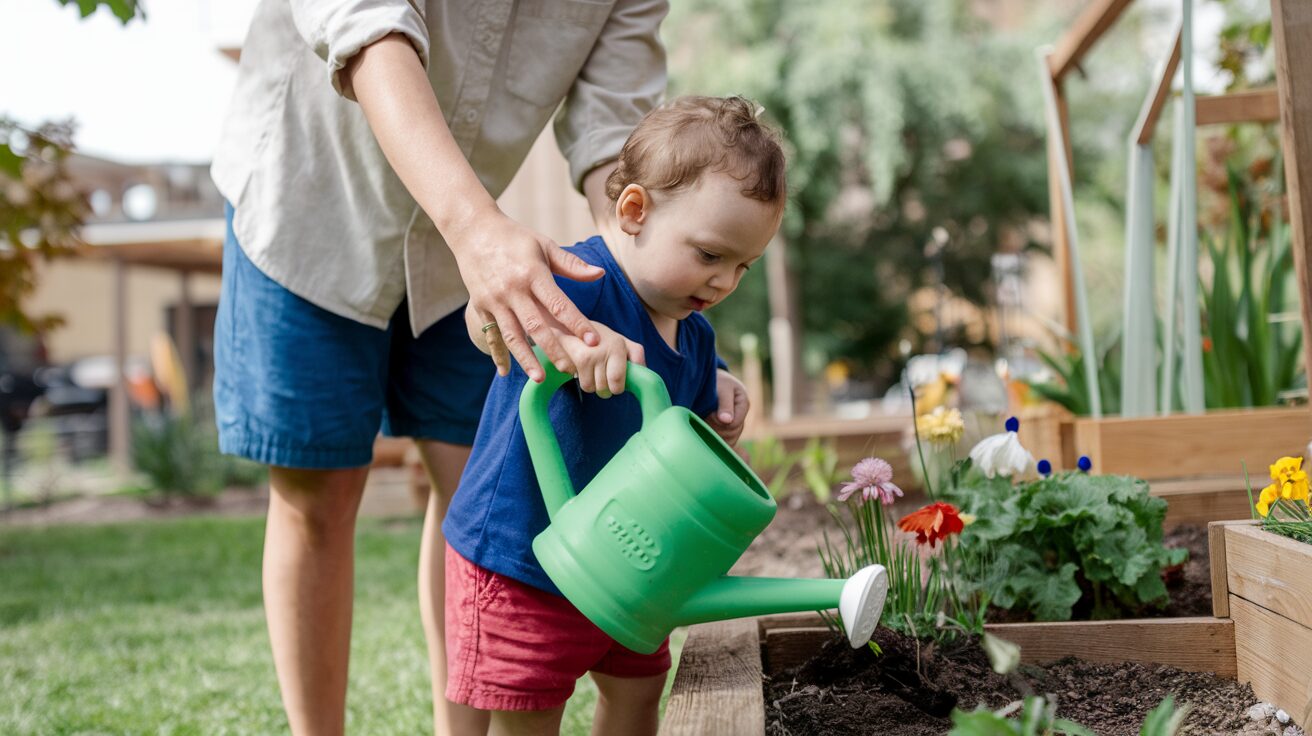As a parent, you likely wish your ausome child could tackle more household tasks. Participating in family routines breeds confidence and readiness for adulthood. But where to start when substantial support is still needed for self-care? Begin small and focus on enjoyment over perfection. Interest and ability should guide what duties you assign. Offer encouragement and incentive to develop positive habits.
Kitchen Helpers: Enhancing Coordination & Family Connection
The kitchen offers endless possibility for suitably supervised participation to build skills. Enable your child to mix, pour or stir to develop motor coordination. They could wash fruits and vegetables, tear lettuce or garnish plates. Place a stepladder by the counter for reaching ingredients or appliances. Tasting new foods they help make encourages trying different flavors. Use a visual timer for taking turns adding ingredients. Offer choices like “apple or grapes in the salad?”
Some children may progress to preparing basic foods like sandwiches, smoothies or easy snacks. Invest in kid-friendly items like plastic knives, microwaveable plates or a personal blender. Use picture sequences of steps. Hands-on practice breeds familiarity, pride in their yummy creations and willingness to expand food preferences!
Additional duties include sorting fridge items onto designated shelves labeled with words or photos. For example, drinks on the top shelf, fruits and veggies in the middle drawer. Stand side by side chatting while putting groceries away together.
![]()
Grocery Routines: Boosting Reading Skills and Routine Support
At the store, transform chore into game by making a race to find items on your grocery list. Offer a choice between locating broccoli or bananas first. Use a tablet or mobile phone to photograph aisle signs and products to match. This builds reading skills too. Allow your child to navigate pushing the cart to each area, which improves spatial reasoning. Place your helper in charge of important jobs like picking bread loaves devoid of squishy spots or retrieving yogurt tubes set farthest back to maximize freshness. Such responsibilities foster planning abilities and pride. Reward their supervision role over key grocery decisions by letting them select a special treat at checkout.

Handy Helpers: Growing Math Skills and Safety Awareness
Home improvement stores offer fun routines too! Allow your child to push a mini shopping cart to collect drill bits, light bulbs or paint swatches needed for household projects. Set a budget and have them use a calculator app to stay under the allotted amount. Take pictures of project steps and create a task schedule together. Allow them to hold materials or tools (with close supervision) such as stabilizing a board while you measure and cut wood pieces. Engaging in home repair builds numeracy, safety awareness and tool familiarity.
Cleaning Routines: Creating a Supportive Environment for Independence
Keep chores success-oriented with defined spaces like assigning one wall to wipe clean or a single floor tile to vacuum. Scatter scented powders or soaps to mark areas needing attention. Provide a spray bottle with water for misting messy spots prior to wiping. Play lively music for an energetic atmosphere. Switch rags or vacuums to offer choices between tasks and tools, heightening interest. “Would you rather dust the fan blades or wipe off the table?” Start small. Even handling modest jobs imparts satisfaction from contributing. Customize their experience by saying something like, “Our kitchen needs a superhero like you to save it from the scary germs!”
As your child demonstrates readiness for expanded duties, incrementally increase assigned chores while keeping expectations reasonably achievable. Infuse relationship connection and fun into home tasks! Celebrate skill growth that emerges from actively participating in family routines. Progress over perfection is the goal. Effort earns the real rewards!
Nature Routines: Connecting with the World & Strengthening Family Bonds
Head outside and allow your child to water plants using a toy watering can, their fingers or a hose sprayer attachment. Show them how to gently wiggle potted plants free of excess water. Watch videos about seeds together then allow them to pick fruits from your garden. Have them help prepare soil beds for the next crop by sifting fertilizer or compost through fingers first to check for foreign objects before mixing in. Carefully supervised, they could pull weeds or sweep debris from a pathway. Identify bird species at backyard feeders using a nature app and mark sightings on a chart. Schedule and chart garden or nature walk routines using sticker symbols. Revel in the sensory adventure and life lessons from stewarding the natural world!
Whatever duties most appeal, communicate with other caregivers like grandparents about the defined responsibilities when visiting different households. Consistency between environments makes new skills truly stick. Celebrate the increase in abilities that comes from actively participating in family routines.
Let us know what helpful household jobs your little one handles bellow in comments!
Related article: 5 Tips to Preserve Family Bonds After an Autism Diagnosis: Supporting Your Child and Family


